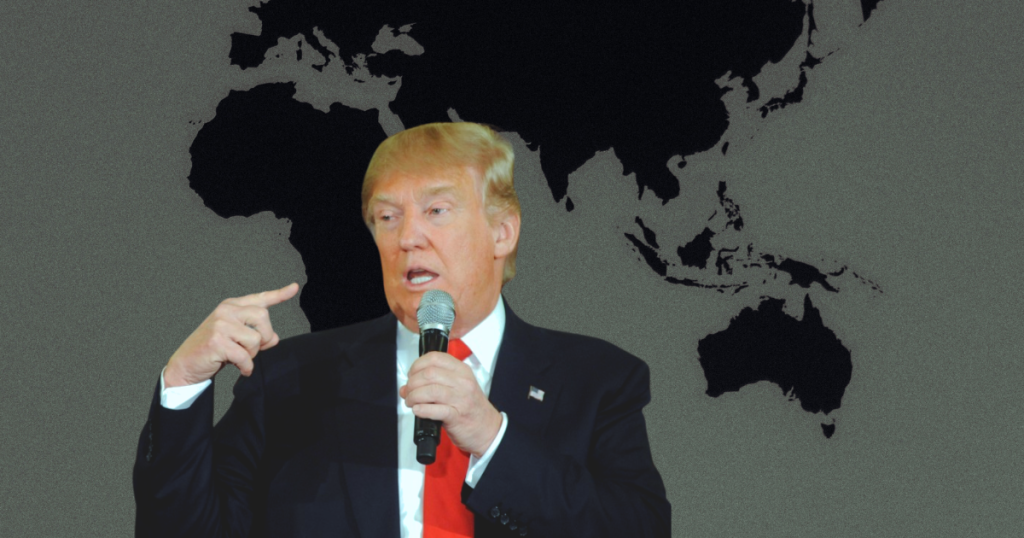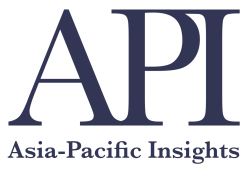No change in US Indo-Pacific policy if Trump wins in November - O’Brien

By Manuel Mogato | Date 03-07-2024
MANILA — If former president Donald Trump returns to the White House after the November presidential elections, his former national security adviser assured the Philippines that the United States’ foreign policy toward the Indo-Pacific region would not change.
During frequent conversations with the security adviser, Robert O’Brien, the country’s long-time ambassador to Washington, Jose Manuel Romualdez, said China would remain the United States’s top security challenge as its influence expands not only in the region but globally.
“We have remained in touch, and we have continued to interact, and he advised me that former President Trump will not change his policy, at least in the Indo-Pacific region,” Romualdez said in a speech, referring to Ambassador O’Brien. “Of course, that is very consoling.”
China has risen as the world’s second-biggest economy and may overtake the United States in a decade.
China’s number of aircraft, vessels, and missiles has already tipped the balance of power in its favor in the Indo-Pacific region.
It has forced the United States to invest more defense dollars in its Pacific Deterrence Initiative (PDI) program to boost its regional strategic and tactical capabilities.
Under the Biden administration, its national security strategy has identified Beijing as “America’s most consequential geopolitical challenge,” rebuilding alliances and promoting a free and open Indo-Pacific region.
There was apprehension Washington’s security policies would change if Trump returned to power in November after he threatened to abandon the North Atlantic Treaty Organization (NATO).
There were also fears that Trump could reverse US support for Ukraine, which has been struggling to repel Russia’s aggression.
During Trump’s administration from 2017 to 2021, he criticized the 31-member NATO, accusing Germany of not paying enough for Europe’s defense and questioning its collective defense principles.
It has forced European states to increase defense spending and launched the largest war games this year to prepare for any contingency, including a Russian invasion.
However, O’Brien made firm assurances that US foreign policy would not change toward the Indo-Pacific region.
“As I said earlier, one of the close advisers of former President Trump has indicated that if former president Trump is lucky to get back to the White House, he will not change his policy towards the Indo-Pacific region,” Romualdez said.
“The Philippines stands by our number one ally, and we will continue to work with them on many things that are good for both countries.”
The United States started to pay close attention to China in the 1990s after it withdrew from its two largest overseas military bases in the Philippines.
China occupied Mischief Reef in 1995, building a makeshift structure for its fishermen. Over the years, the structure was transformed into a concrete fortress until it became an island with an airfield and secured port.
Beijing has made seven man-made islands in the Spratlys and increased its presence in the South China Sea, harassing the Philippines, Malaysia, and Vietnam’s efforts to explore oil and gas resources in the area.
By 2012, under a Democrat leader, Barack Obama, the United States announced a “pivot to Asia” policy.
Although Washington increased defense spending in the region, the pivot was more in economics than security as the United States was more interested in increasing trade and investment with the world’s fastest-growing economy.
The Philippines, the US long-time ally in the region, felt abandoned when the US did not lift a finger when China reneged on its promise to pull out from Scarborough Shoal after a three-month standoff in 2012.
The US was reluctant to dip its fingers in a potential armed conflict with China over a rocky outcrop in the South China Sea.
Seven years later, Washington changed its tune under the Trump administration when the US State Department, led by Mike Pompeo, clearly assured Manila it would stand by its ally against Beijing.
In a major policy shift, Washington made a clear pronouncement on the South China Sea issue, supporting Manila’s legal victory at The Hague in 2016.
Washington also abandoned its ambiguous policy under the 1951 Mutual Defense Treaty (MDT) to come into the defense of an ally in case of an armed attack on its aircraft or vessel anywhere in the South China Sea.
Before, it has only assured help in a conflict within the Philippines’ metropolitan area.
Pompeo’s 2019 policy will support the Philippines in case of an attack anywhere in the South China Sea, including in the disputed areas.
Under Trump, the US started transferring brand-new military hardware, like drones, maritime surveillance and reconnaissance equipment.
When Biden was elected in 2020, his administration adopted the Pompeo doctrine, assuring Manila of its “ironclad” commitment under the MDT.
The Biden administration has been rebuilding alliances in the Indo-Pacific region since it came into office after Trump.
It has revitalized the Quadrilateral Dialogue with Australia, India, and Japan and offered nuclear-powered submarines to Australia in partnership with the United Kingdom.
It also created mini-laterals with Japan and South Korea, Australia and the Philippines, and Japan and the Philippines.
It also increased engagements with other regional security partners, like Vietnam, Thailand, Singapore, Malaysia, and Indonesia.
Under its PDI, it planned to build new ships, planes, medium-range missiles, radar, and anti-missile defenses.
It also planned to increase military exercises and training with regional allies and partners.
For this year, the US would hold its biggest war games with the Philippines, the joint and combined “Balikatan” with more than 20,000 troops.
Australia, Japan, and other allies were asked to send a token number of troops for the two-week military activities.
Defense and military officials have said the frequency and number of cooperative activities with the United States will increase this year.
The two allies already had three joint sail and air patrols in the disputed waters, with US strategic B-52H bombers patrolling the West Philippine Sea for the first time.
There are plans for a second 2+2 ministerial meeting with Washington in the second quarter to discuss the US security assistance under a five-year roadmap and additional locations for the Enhanced Defense Cooperation Agreement (EDCA) sites.
